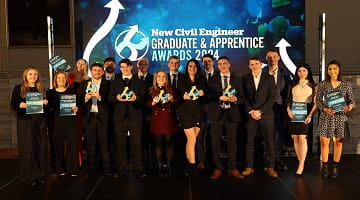About this course
This programme prepares students from varied backgrounds for work in the fields of forensic audio and audio restoration utilising state-of-the-art methods and technology.
- Whether you want to use your experience and skills to help fight crime in the digital age or preserve our media heritage for the future, this is the course for you
- The course will help you convert and apply your Audio/Science skills, qualifications and experience to enhance your employability in the new emerging industries of Audio Forensics and Media Restoration
- The course has been designed specifically to meet the needs of exacting standards of each industry
- On completion of the course you will emerge well prepared to develop a career in both areas of study
- The Audio Forensics and Restoration Masters is ideal for those who have a strong interest in: Audio archiving, Sound preservation and Restoration, Modern CSI techniques, Audio forensics with expert witness disciplines, Evidence analysis, Audio processing
The processes and techniques taught across the course are fully integrated and complementary. They are designed specifically to help you convert your current related qualifications and skills into high value specialisms that can serve the many industries requiring qualified, informed audio expertise.
The Audio Forensics modules will equip you for a career working with or for the police, supporting investigations as a modern digital forensic provider. Further skills gained from the Expert Witness module will open up additional opportunities in the emerging professional private investigative services. The ability to authenticate, analyse and enhance audio evidence to the exacting standards required by law is now one of the most sought after technical skills in the crime detection portfolio.
The restoration modules are designed specifically to build and broaden audio skills. They will equip you with the knowledge to confidently operate and support the exciting new areas in commercial media that are making 20th Century media accessible to a 21st Century audience. Preparing classic film soundtracks for re-release, preserving archive musical performances and restoring analogue recording for modern streaming distribution are just some of the exciting new careers emerging thanks to the digital tools you will be using on this course.
After completion of this course you will not only be suitably equipped to operate within the proposed ISO frameworks of Modern Digital Forensic Services but fully prepared to utilise your skills for enhanced employability in specialist areas of the modern media industry.
Course modules
Discover the building blocks of your programme
Further guidance on modules
Modules are designated core or optional in accordance with professional body requirements, as applicable, and LJMU’s Academic Framework Regulations. Whilst you are required to study core modules, optional modules provide you with an element of choice. Their availability may vary and will be subject to meeting minimum student numbers.
Where changes to modules are necessary these will be communicated as appropriate.
Core modules
Your Learning Experience
An insight into teaching on your course
Study hours
Classroom contact is approximately 13 hours per week in Semester 1, and 11 hours per week in Semester 2. Self-study would bring the total study time to 60 hours per week.
Teaching methods
Teaching within modules normally involves delivering lectures to students in order to deliver core knowledge and underpinning theory which is reinforced by the use of tutorials and practice sessions. During the practice sessions a student-centred approach is normally taken, aimed at encouraging students to “learn by doing”.
Applied learning
Learning is heavily focused on applied learning related to audio restoration/forensics. The assessment philosophy is 'learn by doing'.
How learning is monitored on your programme
To cater for the wide-ranging content of our courses and the varied learning preferences of our students, we offer a range of assessment methods on each programme.
Assessment is through practical activities and coursework.
Where you will study
The specialist rooms include:
- Broadcast Studio (TV & Radio) (534)
- Studio Gallery (532)
- Media Computing Suite MAC computers (5.29a)
- Radio Room (5.29b)
- Recording Studio (5.29c)
- Sound Booth (512)
The department has a range of subject specific software for audio and video editing & production, including:
- Amped5
- Amped Authenticate
- Izotope RX
- Adobe Suite
- ProTools Premiere
- Pro Logic
Course tutors

Colin Robinson
Programme Leader
The opportunity to work with people who will be using their training with us to make such a positive impact on our lives is always an exciting prospect. But knowing that the skills and disciplines being taught here will be helping support efficient and effective crime fighting is priceless.
The opportunity to work with people who will be using their training with us to make such a positive impact on our lives is always an exciting prospect. But knowing that the skills and disciplines being taught here will be helping support efficient and effective crime fighting is priceless.
Colin Robinson brings decades of professional audio and related media expertise, with 12 years hands-on teaching of Broadcasting, Acoustics, Audio Restoration and Audio and Video Forensics to his role as programme leader to this new one of a kind MSc. Always looking for new and exciting ways to develop materials and methods to enhance the learning process, he has built an impressive portfolio of student focused education initiatives, counting Sir David Attenborough, Sir Ken Robinson, Steve Backshall and The BBC Listening Project amongst his high-profile collaborators. He now devotes his time to research and educating with the new exciting digital tools and disciplines that support forensic investigations.
-
 Lecturer/Senior Lecturer
Lecturer/Senior Lecturer -
 Lecturer/Senior Lecturer
Lecturer/Senior Lecturer
Career paths
Further your career prospects
LJMU has an excellent employability record with 96% (HESA 2018) of our postgraduates in work or further study six months after graduation. Our applied learning techniques and strong industry connections ensure our students are fully prepared for the workplace on graduation and understand how to apply their knowledge in a real world context.
Graduates might choose to pursue career as one of the following:
- Audio Forensic Specialist
- Audio Restoration Specialist
- Multimedia Restoration Specialist
- Digital CSI technician
- Academic research and education
- Private Audio forensic expert witness
- Corporate archivist
Tuition fees and funding
- Full-time per year:
- £10,415
Fees
The fees quoted above cover registration, tuition, supervision, assessment and examinations as well as library membership and student IT support with access to printed, multimedia and digital resources including programme-appropriate software and on campus wifi.
Financial Support
There are many ways to fund postgraduate study for home and international students. From loans to International Scholarships and subject-specific funding, you’ll find all of the information you need on our specialist postgraduate funding pages. The University offers a range of financial support for students. You'll find all the information you need on our specialist financial support pages including details of the Student Support Fund and other activities to support with the cost of living.
Additional Costs
In addition to fees, students should also keep in mind the cost of:
- Accommodation
- Travel costs and field trips unless paid for by LJMU
- Stationery, IT equipment, professional body membership and graduation gown hire
Entry requirements
You will need:
Qualification requirements
How to apply
Securing your place at LJMU
To apply for this programme, you are required to complete an LJMU online application form. You will need to provide details of previous qualifications and a personal statement outlining why you wish to study this programme.
Your university life
From accommodation and academic support to clubs and societies. Find out what LJMU has to offer.
Related Links
Talk to our students
Connect with a current LJMU student for advice and guidance on university life, courses and more.
See what our students are saying
At LJMU we want you to know you're making the right choice by studying with us. You can see what our students are saying about their LJMU experience via the following websites:
Related Links
News and views
Browse through the latest news and stories from the university
The University reserves the right to withdraw or make alterations to a course and facilities if necessary; this may be because such changes are deemed to be beneficial to students, are minor in nature and unlikely to impact negatively upon students or become necessary due to circumstances beyond the control of the University. Where this does happen, the University operates a policy of consultation, advice and support to all enrolled students affected by the proposed change to their course or module.



























